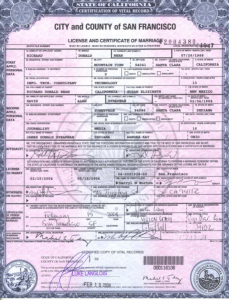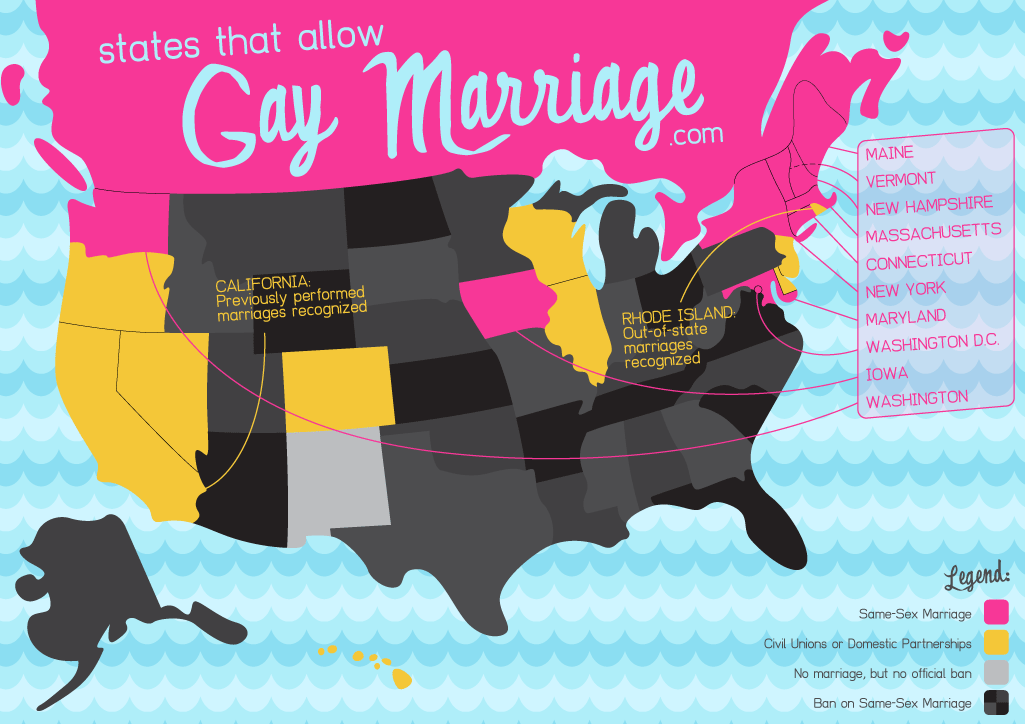


Tuesday and Wednesday this week was a Supreme Court Superbowl of sorts with high-profile lawyers going before the highest court in the United States to makes their cases for and against ‘Prop 8’ (Tuesday) and DOMA (Wednesday). Prop 8 is short-hand for California’s Proposition 8 from the 2008 state elections there, that was approved and eliminated the rights of same-sex couples to marry there, leaving some 4,000 marriages already performed in legal limbo. However, Prop 8 was ruled unconstitutional by a US District court judge. The Supreme Court agreed to hear it. DOMA stands for the 1996 US Congress’s Defense of Marriage Act, stipulating that the federal government is not allowed by law, to recognize same-sex marriages from the States. There are about 1,100 benefits and privileges that come with marriage, so this is not a trivial matter if you are a gay person with a partner you want to marry or are married to already, under your State laws. (Some states allow ‘civil unions’ or domestic partnerships. Most others have explicitly banned it. Go west young man! or young woman, as that classic YMCA song says). So .. how to sort all of this out? ‘When did same-sex marriages become ‘unconstitutional’? asked conservative Justice Antonin Scalia, expressing his sceptisicm. But here is Justice Ruth Bader Ginsberg at a later point .. my answer would have been, Mr. Clement, (the lawyer arguing for upholding the Defense of Marriage Act), if we are totally for the States’ decision that there is a marriage between two people, for the federal government then to come in to say no joint return, no marital deduction, no Social Security benefits; your spouse is very sick but you can’t get leave; people—if that set of attributes, one might well ask, What kind of marriage is this?” Then Justice Ginsburg answered her own question. Under DOMA there were “two kinds of marriage; the full marriage, and then this sort of skim-milk marriage.” The Supreme Court should issue their ruling on both cases by June. Most legal pundits that hazard a guess at each of the outcomes say that first, for Prop 8, it sounds as if they will simply say that they are not going to issue a ruling. (It’s complicated and there are issues of ‘standing’ .. since the California Attorney General and Governor both declined to defend Prop 8, could the proponents of Prop 8 defend it in front of the Supreme court?). So if the Supreme Court does not issue a ruling, then the overturn of Prop 8 stands and same-sex marriages are good to be recognized (again) in California. As for DOMA, it appears that a majority of the nine Supreme Court judges will rule it unconstitutional .. or at least rule that the Federal government has to recognize all marriages sanctioned by the States. That would still leave same-sex couples in those States that currently ban same-sex marriage worse off, but hopefully those bans will also be overturned in time. The wheels of justice turn slowly.

